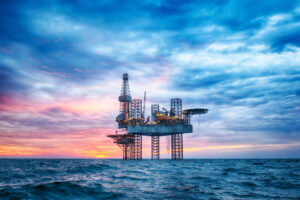A worker performs a final check on new Volkswagen ID.3 electric cars at the Volkswagen plant on May 14, 2025 in Dresden, Germany.
Sean Gallup | Getty Images News | Getty Images
Germany’s Volkswagen on Friday lowered its full-year guidance and reported a sharp drop in second-quarter profit, as the auto giant navigates the disruptive impact of U.S. tariffs and restructuring costs.
Europe’s biggest carmaker posted operating profit of 3.83 billion euros ($4.49 billion) for the three months through June, down 29% from 5.4 billion euros a year ago. Analysts had expected second-quarter profit to come in at 3.94 billion euros, according to a Factset-compiled consensus.
Volkswagen reported second-quarter sales revenue of 80.8 billion euros, also missing analyst expectations of 82.2 billion euros.
The automaker said the impact of U.S. tariffs alone cost the company 1.3 billion euros in the first six months of the year. Restructuring provisions, meanwhile, amounted to 700 million euros over the same period.
Looking ahead, Volkswagen said its 2025 operating return on sales is now expected to range between 4% to 5%, down from a previous forecast of 5.5% to 6.5%. Full-year sales are expected to come in line with the level achieved as last year, compared to a rise of up to 5% previously.
The results come as Europe’s automakers struggle to get to grips with a series of industry challenges, including robust competition from Chinese car brands and U.S. President Donald Trump‘s import tariffs of 25%.
The automotive sector is widely regarded as acutely vulnerable to U.S. tariffs, particularly given the high globalization of supply chains and the heavy reliance on manufacturing operations across North America.

“If you look at the first half of the year, you see basically a mixed picture,” Arno Antlitz, chief financial officer at Volkswagen, told CNBC’s “Squawk Box Europe” on Friday.
“First and foremost, you see tremendous success of our products, both on the combustion engine side and on the electric vehicle side. In Europe, every fourth vehicle comes from the Volkswagen Group, but as you said, our numbers are significantly down,” he added.
Volkswagen’s CFO said the firm’s ramp up of EVs weighed on margins, noting that margins for EVs are lower compared to international combustion engine (ICE) vehicles.
Aside from that, Antlitz said one-offs such as the impact of U.S. tariffs and restructuring measures had a combined cost of about 2 billion euros.
Key earnings highlights:
- Volkswagen reported 80.8 million vehicle sales in the three months through June, down 3% from the same period a year ago.
- Order intake for vehicles in Western Europe rose by 19% in the first half of the year.
- The company said it expects a full-year investment ratio of between 12% to 13% in its automotive division.
Trump recently threatened to raise duties on EU auto imports to 30% from Aug. 1, ramping up the pressure on the 27-nation trading bloc. The European Commission, the EU’s executive arm, has since been considering its response.
Volkswagen said it is assumed that U.S. import tariffs of 27.5% will continue to apply in the second half of the year, noting there is “high uncertainty” with regard to trade policy.
Shares of Volkswagen rose 2.7% on Friday morning, reversing earlier losses.
Home market vs. export market
Rico Luman, senior sector economist for transport and logistics at Dutch bank ING, said it was encouraging to see that Volkswagen had been able to ramp up its electric car sales “quite significantly,” particularly in its home market of Europe.
“Yes, they struggled to keep up in the export market, but at least [the] home market is doing well at the moment. They are ramping up EV sales. It’s now hitting 11% on a global level of its total sales — and in Europe it is already much more,” Luman told CNBC’s “Europe Early Edition” on Friday.
“They possibly might have benefitted from deteriorated Tesla sales but still it is doing quite well at the moment in Europe,” he added.
A new Volkswagen ID.3 electric car prepares to pass final inspection at the Volkswagen plant on May 14, 2025 in Dresden, Germany.
Sean Gallup | Getty Images News | Getty Images
Volkswagen reported first-half vehicle sales growth of 19% in South America, 2% in Western Europe and 5% in Central and Eastern Europe. The company said this more than made up for the expected declines of 3% in China and — primarily due to tariffs — for a 16% dip in North America.
The company said its order intake for all-electric vehicles in the first half of 2025 rose by 62%.
— CNBC’s Jenni Reid contributed to this report.









